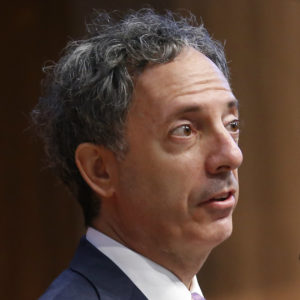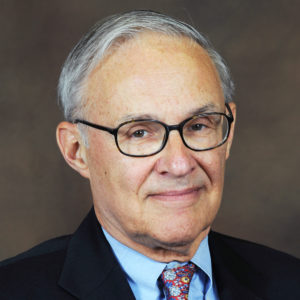What Is Liberal Education?
Reflect on the enduring value of liberal education and its importance for a free society.
JUNE 14 – JUNE 27, 2020
Washington, DC
Young people with ambitions often want to lead politically successful lives that are also morally serious lives. Is this possible? Can we both do well and be good? Or do the demands of political life, the needs of the community, and the dilemmas of leadership, make ordinary morality impossible for those who seek power and influence?
In this opening course for the Hertog Political Studies Program, led by Professors Bryan Garsten and Benjamin Storey, students will engage with these questions through a close reading of Plato’s Gorgias. They will reflect on the ethical dilemmas implied by the pursuit of power, in politics and other realms, and on how we should conduct ourselves in a world in which the demands of justice and the demands of political necessity often seem to conflict.
Images: Emanuel Benner, Hercules between Virtue and Vice, oil on canvas | Jean-Baptiste Regnault, Socrates Tears Alcibiades from the Embrace of Sensual Pleasure, oil on canvas, 1791
Ben Storey interviews Leon Kass on philosophy, religion, & liberal education

Bryan Garsten is Professor of Political Science at Yale University. He writes on questions about political rhetoric and deliberation, the meaning of representative government, the relationship of politics and religion, and the place of emotions in political life.

Bryan Garsten is Professor of Political Science and Chair of the Humanities Program at Yale University. He is the author of Saving Persuasion: A Defense of Rhetoric and Judgment (Harvard University Press, 2006), as well as articles and essays on questions about political rhetoric and deliberation, the meaning of representative government, the relationship of politics and religion, and the place of emotions in political life.
He is finishing a book called The Heart of a Heartless World that examines the ethical, political and religious core of early nineteenth-century liberalism in the United States and France. He has also edited Rousseau, the Age of Enlightenment, and Their Legacies (Princeton University Press, 2012), a collection of essays by the Rousseau scholar Robert Wokler. His writings have won various awards, including the First Book Prize of the Foundations of Political Theory section of the American Political Science Association.
He has served as Director of Undergraduate Studies for Yale’s major in Ethics, Politics and Economics and the Director of Graduate Studies for the Department of Political Science. In 2016 he founded the Citizens, Thinkers, Writers program for students in the New Haven public schools.

Benjamin Storey is a senior fellow in Social, Cultural, and Constitutional Studies at the American Enterprise Institute (AEI), and co-director of AEI’s Center for the Future of the American University. He is concurrently an SNF Agora Fellow at Johns Hopkins University and a research fellow at the Civitas Institute at the University of Texas at Austin.

Benjamin Storey is a senior fellow in Social, Cultural, and Constitutional Studies at the American Enterprise Institute (AEI), and co-director of AEI’s Center for the Future of the American University. He is concurrently an SNF Agora Fellow at Johns Hopkins University and a research fellow at the Civitas Institute at the University of Texas at Austin.
Prior to coming to AEI, Dr. Storey served as Jane Gage Hipp Professor of Politics and International Affairs at Furman University, where he taught for 17 years. He was the recipient of Furman’s highest award for undergraduate teaching, and the founding director of Furman’s Tocqueville Program.
Dr. Storey has been a visiting fellow at the James Madison Program in American Ideals and Institutions at Princeton University, and the recipient of a “Enduring Questions” Grant from the National Endowment for the Humanities. He has taught at the University of Chicago, and for the Hertog Political Studies Program, the Tikvah Fund, and the William F. Buckley, Jr. Program at Yale.
Dr. Storey is the coauthor, with his wife, Jenna Silber Storey, of Why We Are Restless: On the Modern Quest for Contentment (Princeton University Press, 2021). Together, the Storeys are working on a book titled, The Art of Choosing: How Liberal Education Should Prepare You for Life.
Recommended Reading:
Readings:
Questions:
Readings:
Questions:
Readings:
Questions:
Readings:
Questions:
Readings:
Questions:

Peter Berkowitz
Peter Berkowitz is the Tad and Dianne Taube Senior Fellow at the Hoover Institution, Stanford University. He studies and writes about, among other things, constitutional government, conservatism and progressivism in America, liberal education, national security and law, and Middle East politics.

Bryan Garsten
Bryan Garsten is Professor of Political Science at Yale University. He writes on questions about political rhetoric and deliberation, the meaning of representative government, the relationship of politics and religion, and the place of emotions in political life.

Robert C. Bartlett
Robert C. Bartlett is the Behrakis Professor of Hellenic Political Studies at Boston College. His principal area of research is classical political philosophy, with particular attention to the thinkers of ancient Hellas, including Thucydides, Plato, and Aristotle. He is the co-translator of a new edition of Aristotle’s Nicomachean Ethics.

Diana Schaub
Diana Schaub is a nonresident senior fellow at the American Enterprise Institute (AEI), where her work is focused on American political thought and history, particularly Abraham Lincoln, Frederick Douglass, African American political thought, Montesquieu, and the relevance of core American ideals to contemporary challenges and debates. Concurrently, she is Professor Emerita of Political Science at Loyola University Maryland, where she taught for almost three decades.

Amy A. Kass
Amy Apfel Kass (1940 – 2015) was a senior fellow at the Hudson Institute, Senior Lecturer Emerita in the humanities at the University of Chicago, and coeditor of What So Proudly We Hail: The American Soul in Story, Speech, and Song. She was an award-winning teacher of classic texts.

Leon R. Kass
Leon R. Kass, M.D., is the Addie Clark Harding Professor Emeritus in the Committee on Social Thought and the College at the University of Chicago and the Madden-Jewett Chair at AEI. He was the chairman of the President’s Council on Bioethics from 2001 to 2005. He has been engaged for more than 40 years with ethical and philosophical issues raised by biomedical advances and, more recently, with broader moral and cultural issues.

Jacob Howland
Jacob Howland is McFarlin Professor of Philosophy Emeritus at the University of Tulsa. He has written about Plato, Aristotle, Xenophon, Kierkegaard, the Talmud, the Holocaust, ideological tyranny, and other subjects. His most recent book is Glaucon’s Fate: History, Myth, and Character in Plato’s Republic.

Flagg Taylor
Flagg Taylor is the Executive Director of the Center for Civics, Culture, & Society, at Miami University. His research specialty is in the history of political thought and American government, especially the question of executive power. He is Chair of the Academic Council of the Victims of Communism Memorial Foundation.